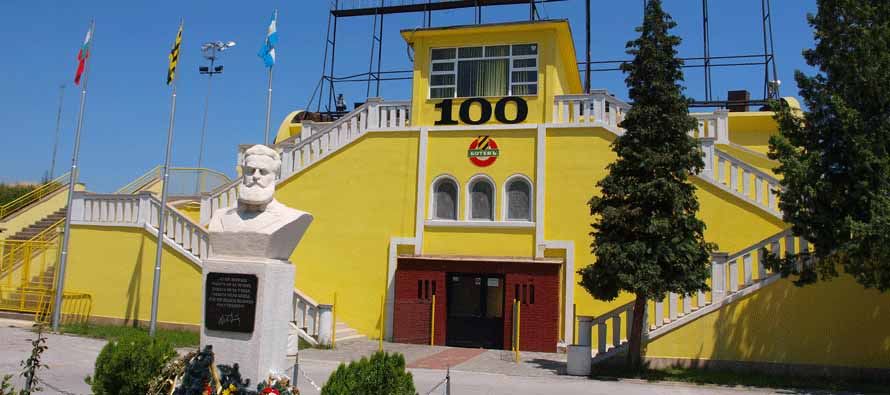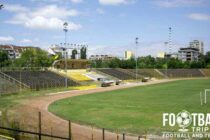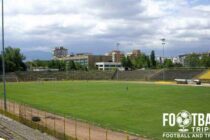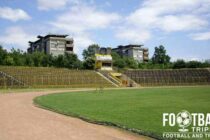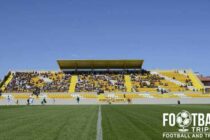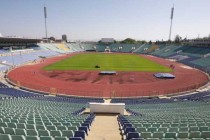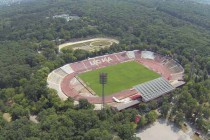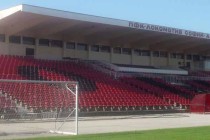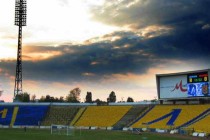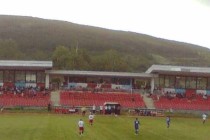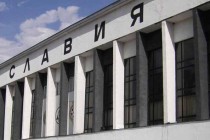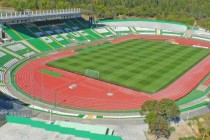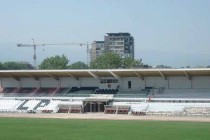Hristo Botev Stadium first opened in 1961 with a capacity of 18,000, and is the home ground of PFC Botev Plovdiv who regularly play in the Bulgarian A-league.
Botev Stadium Guide
Stadium Facts
| Overview | |
|---|---|
| Team: | Botev |
| Opened: | 1961 |
| Capacity: | 18,000 |
| Address: | Plovdiv |
Hristo Botev Stadium History
The inaugural match at Hristo Botev Stadium was held on 14th May 1961 as a friendly between Botev Plovdiv, and famous Romanian side Steaua Bucharest. Originally capable of accommodating up to 35,000 supporters, the stadium was designed by architect Anton Karavelov and took just under two years to build after construction began on 21st July 1959.
Located on a plot of land which was previously owned by the Catholic College of Saint Augustine, the stadium was originally known as The College which is a nickname that is still commonly used by fans today.
The most recent renovations at the stadium occured during the Summer of 2008 when The Central Stand was modernised, and the old changing room facilities were refurbished. There are currently plans to renovate the rest of the stadium at the end of the 2015 season as per the Bulgarian Football Union’s requirements.
To date the highest profile match held at the stadium is arguably the 2000 Bulgarian Cup Final which was held between Levski Sofia and Naftex Burgas.
Stand Photos
Matchday Experience
Botev Club Shop

Botev Club Shop
How to get to Hristo Botev Stadium
Where is Hristo Botev Stadium?
Frequently Asked Questions
Who plays at Hristo Botev Stadium?
Bulgarian side Botev play their home matches at Hristo Botev Stadium.
What is the capacity of Hristo Botev Stadium?
As of 2024 Hristo Botev Stadium has an official seating capacity of 18,000 for Football matches.
When was Hristo Botev Stadium opened?
Hristo Botev Stadium officially opened in 1961 and is home to Botev
Are there any Covid restrictions at the stadium?
Covid Restrictions may be in place when you visit Hristo Botev Stadium in 2024. Please visit the official website of Botev for full information on changes due to the Coronavirus.

